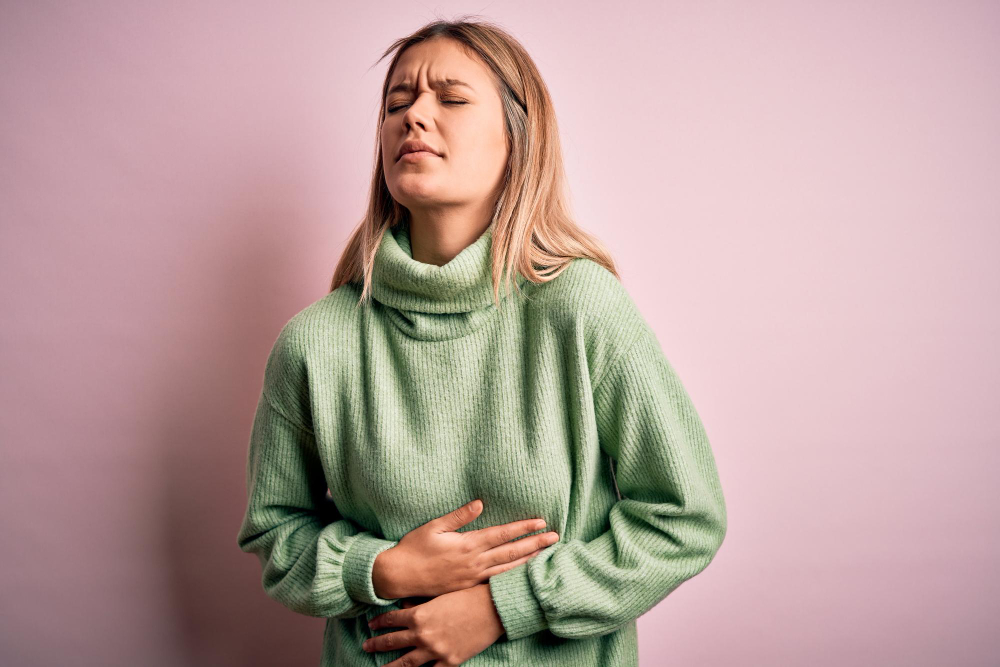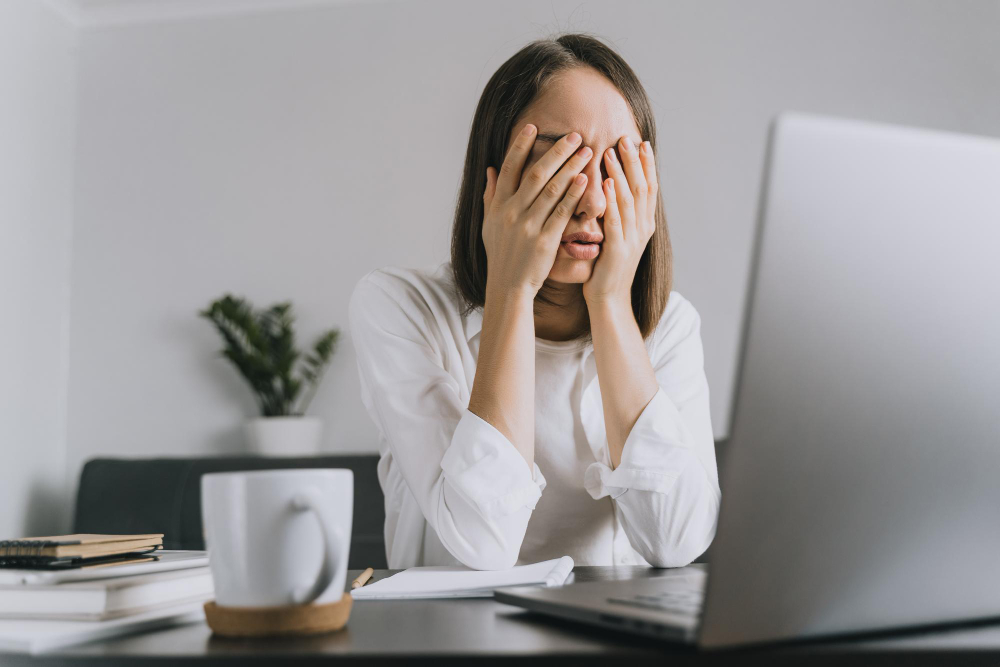Why Does My Stomach Hurt After I Eat?

Almost everyone has experienced it: you finish a meal, and instead of feeling satisfied, you’re left clutching your stomach. Stomach pain after eating can range from a dull ache to sharp cramping, and while it’s often harmless, it can also signal something more.
The truth is, your stomach doesn’t just hurt for one reason, several factors can play a role. From the way you eat to how your gut bacteria process food, understanding these causes can help you prevent discomfort and support long-term digestive health.

Common Digestive Reasons Behind Stomach Pain After Eating
Before diving into complex causes, let’s look at the most common triggers of stomach pain after eating:
- Overeating – Large meals stretch the stomach and can cause bloating, discomfort, or even sharp pain.
- Food intolerances – Lactose, gluten, or high-FODMAP foods can irritate the digestive system, leading to gas, cramps, and abdominal pain (including lower left or right side tummy pain, depending on where gas gets trapped).
- Acid reflux or GERD – If stomach acid flows back into the esophagus, you may feel burning pain or pressure shortly after eating.
- Indigestion (dyspepsia) – A sense of fullness, nausea, or bloating after even small meals can make your stomach hurt.
- Gas buildup – When undigested food ferments, bacteria release gas. If trapped, it can cause sharp abdominal pain, sometimes mistaken for heart or gallbladder issues.
Less Obvious Causes You Might Overlook
Sometimes the reason your stomach hurts after eating has less to do with what you put on your plate and more to do with how your body responds. Stress is one of the most underestimated triggers. Because of the constant communication between your brain and gut, anxiety or chronic stress can easily manifest as abdominal pain. Emotional distress doesn’t just live in your head, it can settle in your stomach.
The way you eat also plays a role. When you eat too quickly, you swallow more air and skip the thorough chewing your body needs to break food down efficiently. This often results in bloating and indigestion shortly after meals. Even posture can make a difference. Slouching in your chair or lying down right after eating can worsen acid reflux and slow the digestive process.
Finally, there’s the issue of hidden inflammation. Even without a diagnosed food allergy, your immune system may still react subtly to certain foods. These low-grade immune responses can irritate the lining of your gut and contribute to ongoing discomfort, leaving you puzzled about why your stomach hurts after otherwise “normal” meals.

When Food Meets Bacteria and Probiotics: The Gut Microbiome’s Role
A fascinating angle scientists are uncovering is the role of bacteria in digestive discomfort. Your gut is home to trillions of microorganisms – collectively called the microbiome. These bacteria and microbiotics break down food, produce vitamins, and support immunity. When the balance tips, however, stomach pain after eating becomes more likely. A recent review shows probiotics can significantly reduce abdominal pain and bloating in people with IBS, demonstrating how modulating these bacteria has real effects.
- Fermentation and gas – Certain bacteria ferment carbohydrates, producing excess gas that leads to bloating and abdominal pain, especially in the lower left area. The Harvard School of Public Health offers a detailed overview of how dysbiosis (imbalance) happens and why bacterial diversity is important for gut health.
- Antibiotics and medication – These can disrupt gut bacteria, sometimes leading to cramps and diarrhea after meals.
- Gut diversity – A microbiome rich in beneficial bacteria is linked to better digestion, while low diversity may cause discomfort after common foods.
This is where gut health probiotics come in. Supplementing with probiotics can help restore balance, improve digestion, and reduce painful gas or bloating. Some studies suggest probiotics may even help with irritable bowel syndrome, a condition often marked by stomach hurt after meals.
Probiotics and Lifestyle Changes: Practical Steps to Reduce Stomach Pain After Eating
The good news: you don’t have to resign yourself to post-meal discomfort. Simple adjustments can make a big difference.
Mindful eating
Chew thoroughly, slow down, and stop before you feel overly full. Giving your digestive system time to process prevents indigestion and reduces the chance of bloating.
Identify triggers
Keep a food journal. Note when you feel abdominal pain, is it after dairy, fried foods, beans, or wheat? This helps spot patterns, whether it’s lactose intolerance or high-FODMAP sensitivity.
Support your microbiome
A diet rich in fiber (vegetables, fruits, legumes), fermented foods (yogurt, kefir, kimchi), and probiotics can promote healthy bacteria. Over time, this reduces painful fermentation and supports smoother digestion.
Lifestyle matters
- Drink enough water to aid digestion.
- Avoid lying down right after eating.
- Try gentle movement, like walking, to stimulate digestion.
- Manage stress with mindfulness, deep breathing, or short breaks to calm your gut-brain axis.

Know when to seek help
If stomach pain after eating is persistent, severe, or paired with symptoms like unexplained weight loss, vomiting, or blood in stool, it’s time to see a doctor. While occasional stomach hurt is common, chronic pain may require medical attention and sometimes stomach medicine prescribed by a professional.
Bioma Probiotics for Your Stomach
For those looking to support their gut health more proactively, Bioma products can be valuable allies. These supplements are specifically designed to balance your microbiome, aid digestion, and reduce post-meal bloating or discomfort. Incorporating high-quality probiotics alongside fiber-rich foods and mindful eating habits can help restore gut harmony, minimize abdominal pain, and promote overall digestive wellness.
Bringing It All Together: Probiotics and Healing Your Gut for Pain-Free Meals
Stomach pain after eating isn’t always about “bad food.” It often reflects a combination of eating habits, stress levels, and the health of your gut bacteria. By slowing down, tuning into your body, and supporting your microbiome with the right foods and probiotics, you can often reduce or even eliminate, that all-too-familiar post-meal stomach hurt.

Your gut is designed to work with you, not against you. When you nourish it properly, it rewards you with smoother digestion, less pain, and more enjoyable meals.
Related articles



